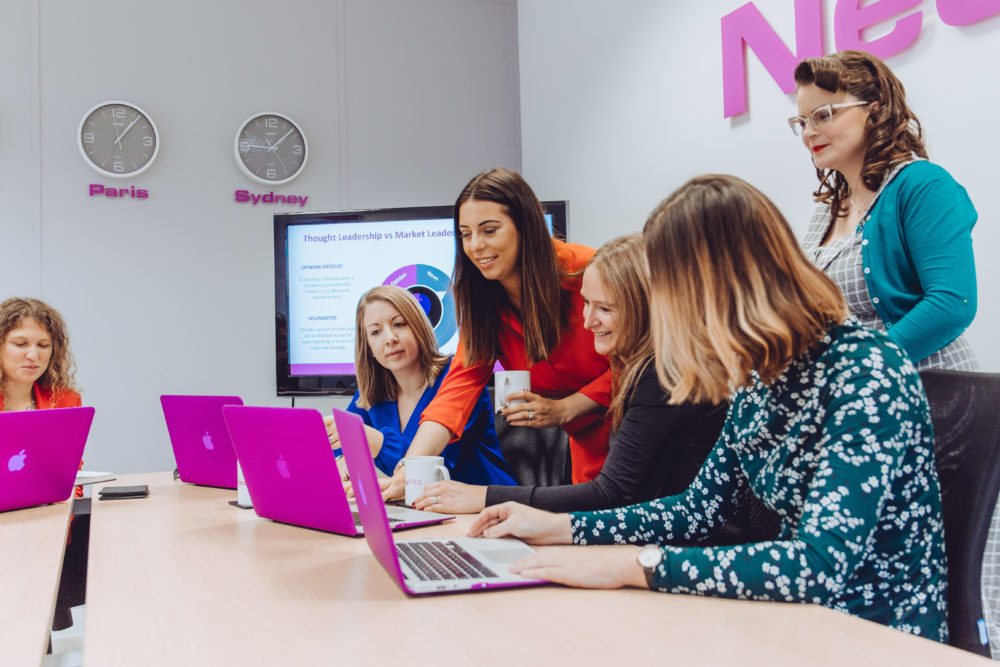The workforce has been through some monumental changes in the past few years.
This is mostly because of technological advances such as social media, automation and instant messaging creating brand new jobs, new ways of working or doing away with work completely. However, all of that is going to pale in comparison compared to what’s in store, both in 2019 and the long run. We’re in a new industrial revolution and just like the previous ones, the workforce is set to be transformed.
So how can business leaders prepare? Chris Milligan, CEO of Adepto, outlines what to expect with your workforce in 2019.
Rise of the freelancers
Freelancing and contracting have really caught on in recent years, with over 15 per cent of the working population currently self-employed in the UK. Some estimate that nearly half the workforce will be freelancers within the next decade.
Freelancers represent a changing part of the workforce and an opportunity for businesses. Tapping into a contingent workforce means that a business can work in a more agile way. It can respond more readily to sudden client demands, increases in work (or, in turn, decreases) and last-minute deadlines.
“Some estimate that nearly half the workforce will freelance within the next decade”
But because freelancers and contractors aren’t part of the permanent workforce, they often don’t enjoy the same interactions or have access to the same company insights as full-timers.
If a hiring manager leaves, their little black book of freelancers might disappear with them, leaving a company high and dry when it comes to resourcing the next project. When hiring a contingent workforce, it’s vital to use technology to ensure that nobody is overlooked.
Gig economy going beyond Uber
The gig economy has had a bad rap, what with Uber and Deliveroo in numerous battles over worker conditions and pay.
However, it’s becoming far more high-brow with white collar gig workers becoming more commonplace. You can now hire gig working lawyers, doctors and scientists, for instance. Over 30 per cent of the global workforce will be millennials by 2020, with half open to non-traditional employment.

Similar to hiring freelancers and contractors, dealing with gig workers requires effective communication and tech solutions that will keep everyone in touch and foster a sense of teamwork.
Brexit is making talent trickier
Brexit is a thorn in the side for many business leaders, causing much aggravation over its uncertainty. Unfortunately, if Brexit ends up limiting free movement for workers then it’s going to be a lot harder for businesses to hire critical talent. It will probably worsen the digital skills gap too.
With less talent available, it will be imperative for businesses to retain their employees. There may be a renewed focus on the employee experience, office perks and (if the economy allows) pay rises.
Speaking of the economy, if it slows then there’ll be fewer jobs available. People may stick in their roles for longer and recruits are likely to upskill or train in new in-demand areas. Overall, there will be more of an onus on learning and development, to upskill in-house staff, to become more competitive in the jobs market, to make a workplace more attractive and to improve retention.
The robots are coming
The past few years have seen smart assistants enter our daily lives through our phones, homes, and now our offices.
Alexa for Business is a dedicated enterprise version of the smart home assistant and where Amazon goes, others will follow. Expect to see many other iterations of Alexa, Siri and co in workplaces before 2019 is over.
For the workforce, this will have mixed results. Naturally, some job losses will occur in sectors that have a lot of routine, mundane work that can be easily handled by a machine. Data entry, for example, will be done solely by AI.
Yet, this will also free up time and resources for more strategic and creative work. People will move into higher-thinking roles that require unique human talents. Some may do completely new jobs, such as an AI ethicist or self-driving car coordinator.
Businesses will play a large part in getting the workforce ready for this future. That could be anything from offering retraining to people who have lost their jobs through automation, to educating employees on the benefits of AI in their daily jobs.
Boomerang employees bouncing back
Boomerang employees are rising in number, partly because people are more connected through social media and other technology. These employees return to an old company after leaving for new pastures or taking a break.
“Talent acquisition is now a top priority for companies that actively engage with their leavers”
Instead of turning them away, more businesses (such as Microsoft, Deloitte, Dell, SAP and JP Morgan) are seeing them as a crucial new part of the changing workforce. Old employees know the company culture and can get up-to-speed more quickly than a new starter. Plus, their time away from a company may have improved their skills, provided valuable market insight or simply made them a more rounded employee.
Talent acquisition is now a top priority for companies that actively engage with their leavers. It’s important not to lose touch with these people, nor lose their experience and skills.
Building an alumni network is key. Without a way to stay in touch with leavers, there’s no way to encourage their return. There’s no way to log their experience or what they’ve been doing since. Keeping up-to-date records and catching up with alumni can add a valuable branch to your existing workforce.
Keeping up with the changes
The workforce will continue to evolve in 2019 and business leaders need to remain in touch with what’s happening, for the good of their organisation and workforce.
By keeping abreast of changes, leaders will be able to prepare themselves and their workforce for the game-changing developments coming their way. Whether that’s through technology, more learning, the rise of gig economy and freelancer workers, better communication or new networks.
The need for a ‘total talent’ approach for managing talent is becoming increasingly important. Don’t let 2019 be the year your workforce was left behind.
Gemma Spinks (centre, dressed in orange) is the director of Neo PR. She explains how she’s preparing for her changing workforce.
 I think the workforce in 2019 will continue to be focused around a better work/life balance. The desire for flexible working and a more social and empowered culture will continue to be prevalent.
I think the workforce in 2019 will continue to be focused around a better work/life balance. The desire for flexible working and a more social and empowered culture will continue to be prevalent.
Employees will want to take more ownership over the times and days they spend working, and to flex work around their home life, while still continuing to grow in their careers. People really value time – this is becoming even more apparent.
It’s also possible that there’ll be an increase in the number of freelance workers who want to build their own career. This may result in a higher amount of freelance workers, but I still believe that many employees enjoy the stability of a more traditional working model and the risks associated with becoming a freelancer are not always favourable.
How we’re preparing
We have already taken steps that allow employees to have more control over the hours they work and, in some cases, the days. We introduced flexible working earlier in the year, meaning that our team can do their seven and a half hours a day between the hours of 8am and 6pm.
What’s more, we accommodate employees that want to go freelance and we continue to work with other freelancers to supplement our workforce. This has increased productivity and also allowed us to fit commitments around our work life, as well as making it less of a big deal when booking things like doctors appointments.
There’s a very strong company culture that encourages growth, responsibility and empowerment, combined with a flexibility and a social element that makes coming to work an enjoyable experience.
Being a small business works to our advantage as we can take suggestions, challenges and questions on board, acting on them quickly. We will always try to address issues and look into requests that will help our workforce continue to grow and become more agile as the times change.





